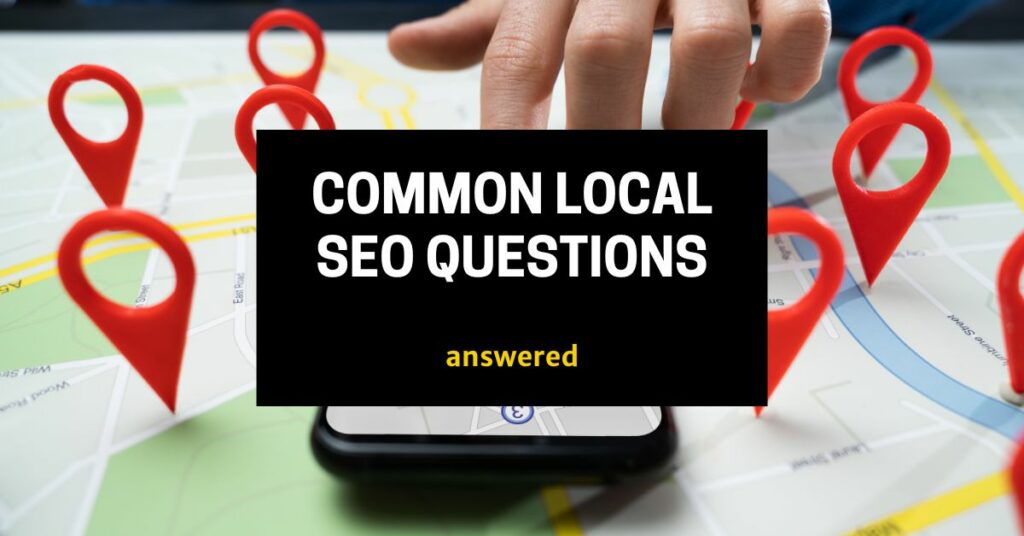Local search optimization is crucial for small businesses that want to be found by potential customers in their area. With the increasing popularity of mobile devices and the growing reliance on search engines to find local businesses, it’s more important than ever for small businesses to rank well in search results. This comprehensive guide will cover everything you need to know about local search optimization, from understanding it’s importance and the benefits it can bring, to the actionable steps you can take to improve your rankings and drive more traffic to your website.
Table of Contents
- Understanding the Importance of Local Search Optimization
- Key Benefits of Local Search Optimization
- Proven Local Search Optimization Strategies
- Tracking Local Search Optimization Metrics
- Conclusion
Understanding the Importance of Local Search Optimization
Local search optimization, also known as local SEO, is the process of optimizing a website to rank better in local search results. It’s essential for businesses with a physical presence, as the majority of customers search online for local businesses. According to Google, 46% of all searches have a local intent.
When local searches are performed, search engines like Google use the searcher’s location to provide the most relevant results. By optimizing your website and online presence for local search, you can significantly increase your chances of being discovered by potential customers in your area.
Key Benefits of Local Search Optimization
There are several significant benefits to optimizing your business for local search:
- Increased visibility: A higher ranking in local search results means more visibility and exposure for your business.
- Targeted traffic: Local SEO helps you attract customers who are specifically searching for products or services in your area.
- Improved conversion rates: Users conducting local searches are often more likely to make a purchase or visit a physical location, leading to higher conversion rates.
- Competitive advantage: Effectively optimized businesses will stand out from their competitors and capture more local market share.
- Cost-effective marketing: Local search optimization is an affordable way to reach potential customers and consistently generates a high return on investment.
Proven Local Search Optimization Strategies
To improve your local search rankings, consider implementing the following strategies:
a) On-Page Optimization
On-page optimization involves making changes directly to your website to improve its ability to rank for local search terms. Key elements of on-page optimization include:
- Optimizing title tags: Include your target keyword and location in your title tags.
- Optimizing header tags: Use relevant H1, H2, and H3 tags with your target keyword and location.
- Meta descriptions: Write informative and concise meta descriptions that include your target keyword and location.
- Local keyword usage: Incorporate location-specific keywords throughout your content to improve local context and relevancy.
- NAP (Name, Address, Phone) consistency: Ensure your business name, address, and phone number are consistent across your entire website.
b) Off-Page Optimization
Off-page optimization focuses on building your online reputation and authority. To achieve this, consider strategies such as:
- Building high-quality backlinks: Reach out to other local businesses and organizations for backlink opportunities in exchange for relevant content or a partnership.
- Citation building: Ensure your business is listed and consistently represented on local directories, review sites, and social media platforms.
- Engaging in local PR: Participate in community events, sponsor local teams, or work with local influencers to improve your brand’s reputation and online presence.
c) Local Search Listings and Directories
Creating and managing your local search listings and directories is essential for appearing in relevant search results. You should focus on:
- Google My Business (GMB): Ensure your GMB profile is up-to-date and optimized, including accurate business information, keyword-rich descriptions, and photos.
- Yelp and other review sites: Claim and optimize your business profiles on popular review sites like Yelp, TripAdvisor, and Foursquare.
- Local directories: List your business in local directories that cater to your target audience and industry.
d) Content Marketing for Local SEO
Developing and publishing locally relevant content can help your website rank higher for local search terms. Such content may include:
- Blog posts focusing on local topics: Write about local events, news, and issues that are relevant to your target audience and include your target keyword and location.
- Localized landing pages: Create location-specific landing pages for each of your business locations, focusing on the unique products or services that each location offers.
- Localized case studies and testimonials: Showcase real-life customer success stories and testimonials from local clients to build trust and authority within your community.
e) Review and Reputation Management
Reviews play a crucial role in local search rankings, so it’s essential to manage your online reputation proactively. Effective review management includes:
- Encouraging customer reviews: Ask satisfied customers to leave reviews of their experience on Google, Yelp, and other platforms.
- Responding to reviews: Respond professionally and promptly to both positive and negative reviews, demonstrating your commitment to customer satisfaction.
- Addressing issues and complaints: Resolve any customer issues or complaints in a timely manner and work to continuously improve your products or services.
Tracking Local Search Optimization Metrics
Measuring your local search optimization efforts is essential for evaluating the success of your strategies and making data-driven decisions. Some essential metrics to track include:
- Organic traffic growth from local search
- Click-through rate (CTR) for local search results
- Local keyword rankings
- Number and quality of backlinks
- Local search conversions and leads
- Competitor analysis and rankings
Conclusion
Local search optimization is a vital aspect of digital marketing for small businesses looking to grow and expand their online presence. By implementing the strategies in this comprehensive guide, you’ll be well on your way to increasing your visibility, attracting targeted traffic, and growing your customer base to ensure your business thrives in your local market.







